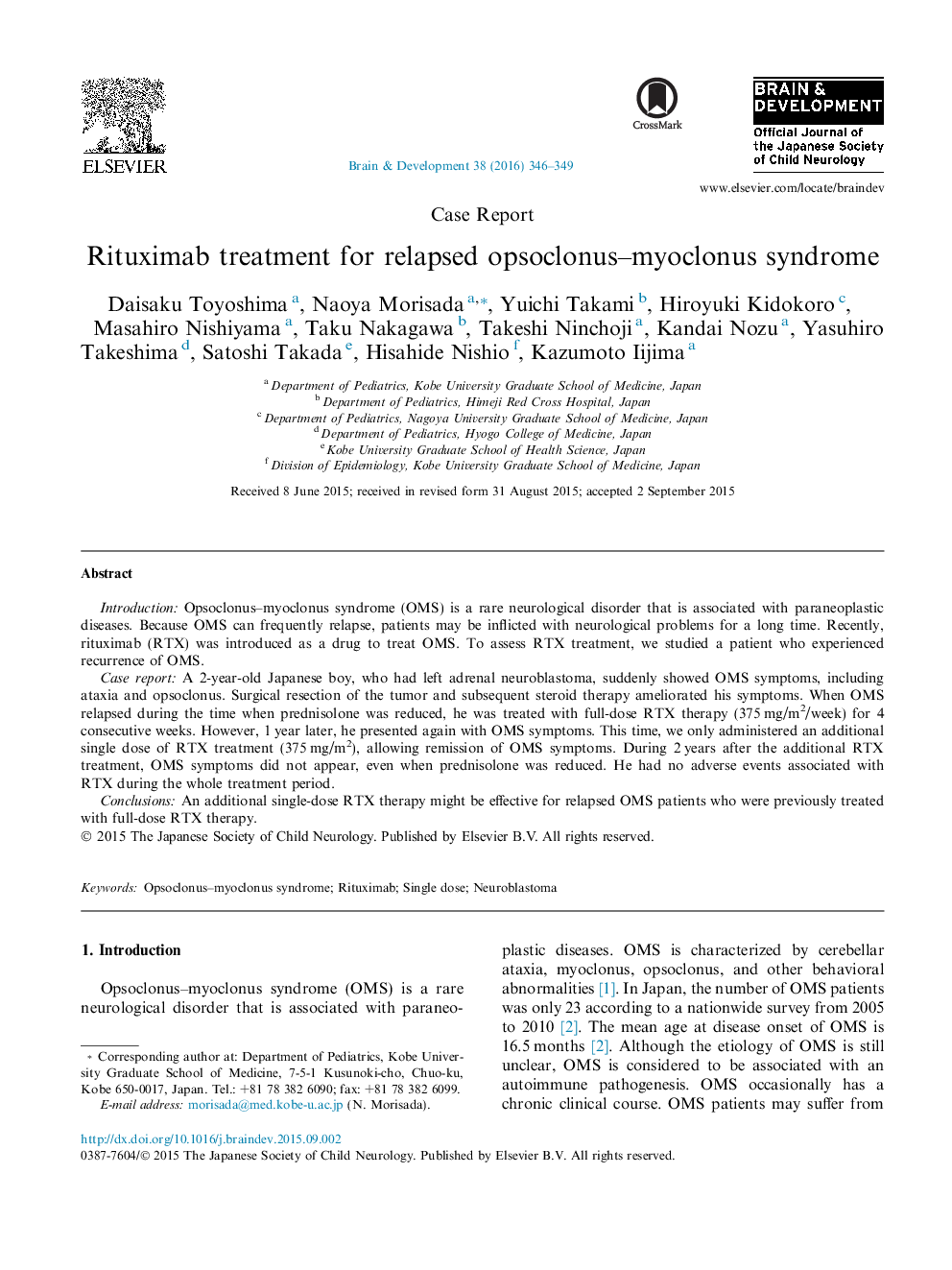| Article ID | Journal | Published Year | Pages | File Type |
|---|---|---|---|---|
| 3036562 | Brain and Development | 2016 | 4 Pages |
IntroductionOpsoclonus–myoclonus syndrome (OMS) is a rare neurological disorder that is associated with paraneoplastic diseases. Because OMS can frequently relapse, patients may be inflicted with neurological problems for a long time. Recently, rituximab (RTX) was introduced as a drug to treat OMS. To assess RTX treatment, we studied a patient who experienced recurrence of OMS.Case reportA 2-year-old Japanese boy, who had left adrenal neuroblastoma, suddenly showed OMS symptoms, including ataxia and opsoclonus. Surgical resection of the tumor and subsequent steroid therapy ameliorated his symptoms. When OMS relapsed during the time when prednisolone was reduced, he was treated with full-dose RTX therapy (375 mg/m2/week) for 4 consecutive weeks. However, 1 year later, he presented again with OMS symptoms. This time, we only administered an additional single dose of RTX treatment (375 mg/m2), allowing remission of OMS symptoms. During 2 years after the additional RTX treatment, OMS symptoms did not appear, even when prednisolone was reduced. He had no adverse events associated with RTX during the whole treatment period.ConclusionsAn additional single-dose RTX therapy might be effective for relapsed OMS patients who were previously treated with full-dose RTX therapy.
